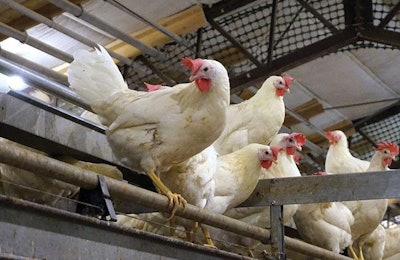
Sustainability and animal welfare have been trendy topics with consumers for more than a decade.
Sustainably-marketed products represented more than 54% of total CPG market growth during the period 2015 to 2019.
"We have to recognize the power of sustainability, not just in the market share but in the contribution to growth," said Larry Levin, executive vice president of market and shopper insights at IRI.
Sustainability means different things depending on your point of view. For some individuals, sustainability means carbon footprint, for others it is a recyclable package. There are tradeoffs for various housing schemes in terms of increasing the overall environmental impact. For instance, there are some tradeoffs for cage-free, it has a higher carbon footprint.
Many consumers now define sustainability as encompassing both environmental and social factors that include minimizing negative environmental impact, commitment to renewable energy, reducing waste, minimizing exploitation of natural resources, minimizing carbon footprint, coming together as a community for the greater good, working in ways that benefit society at large, reducing climate change, protecting human rights and reducing poverty.
"Coming together for the good of the community and organizations working for the benefit of society, those numbers have grown significantly in a year," Levin said. "I think it's a real feather in the hats of the U.S. population that also is viewed to be a part of the sustainability culture."
My question is, do those same consumers prioritize animal welfare? Do not get me wrong. I am all for treating animals humanely, but when it comes to animal agriculture that may not be the most sustainable option.
Millennials, higher incomes and education levels and those living in urban areas are more apt to purchase sustainably-marketed products, but what about the people who live off a low income or have been financially impacted by the pandemic?
Despite a high number of product shortages, many consumers still prioritized sustainably-marketed products during panic buying, according to a new report from IRI and the NYU Stern Center for Sustainable Business.
However, the same may not be said for specialty products that focus on animal welfare. Even before the pandemic, the egg industry was struggling to sell cage-free products. Despite a short increase in egg prices, conventional egg prices are low again and have remained low for weeks. Consumers are not willing to pay the extra premium for cage-free or free-range products.
It would behoove poultry and livestock producers to come up with common measurements for "sustainability" and not just let activists do this.
My point in this is that producers need to start explaining sustainability to consumers in a way that will benefit production practices. IRI data supports that consumers believe in sustainability, producers just have to push their agenda rather than letting animal activists do it. If activists continue to tell the story, producers may be forced to create a product that isn't actually more sustainable and cost more.
Looking at the egg industry alone, cage-free practices do not fit the sustainable guidelines listed above.

















